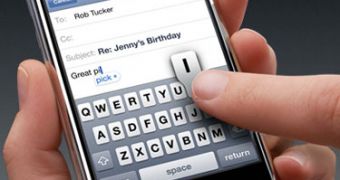HP, the leading vendor of computer systems, is working on an array of new products, including notebooks, which will provide the same finger-tapping features that have made Apple's iPhone such a popular device. According to the Wall Street Journal, the company has high hopes that, within 18 months, it will be able to put out a number of touch-enabled notebook computers.
Apple's iPhone is undoubtedly one of the most successful products of the Cupertino, California-based company, with more than 6.1 million iPhones being sold since their debut in 2007. One of the reasons for the success of this device is that it provides a unique and interactive way of browsing through the phone's applications. It is precisely this set of features that HP aims to incorporate in its upcoming notebooks, some of which will probably be built on Intel's Calpella, due to be released sometime in Q3 next year.
Apparently, HP's strategy comes off as mandatory in a context in which the company needs to provide a more competitive edge in the face of stiff competition coming from Dell. According to the online edition of the Wall Street Journal, HP has seen its shares go down by 11% on a year-to-date, to $45.
"We're focused on recognizing the potential of touch now," said Phil McKinney, the chief technology officer for the company's laptop-making Personal Systems Group. "We see touch as the almost preferred method for nontechnical users."
According to iSuppli, an industry tracker, the number of touchscreen devices, including PCs, should reach 800 million units by 2013, double of what the current figures indicate. Touchscreen sales are expected to reach $6.4 billion over the same period, up to 33% from 4.8 billion. This should explain HP's strategy, which seems to be keeping in pace with the future developments of technology.
"Touch represents the interface of the future," said Richard Shim, an analyst with IDC.

 14 DAY TRIAL //
14 DAY TRIAL //